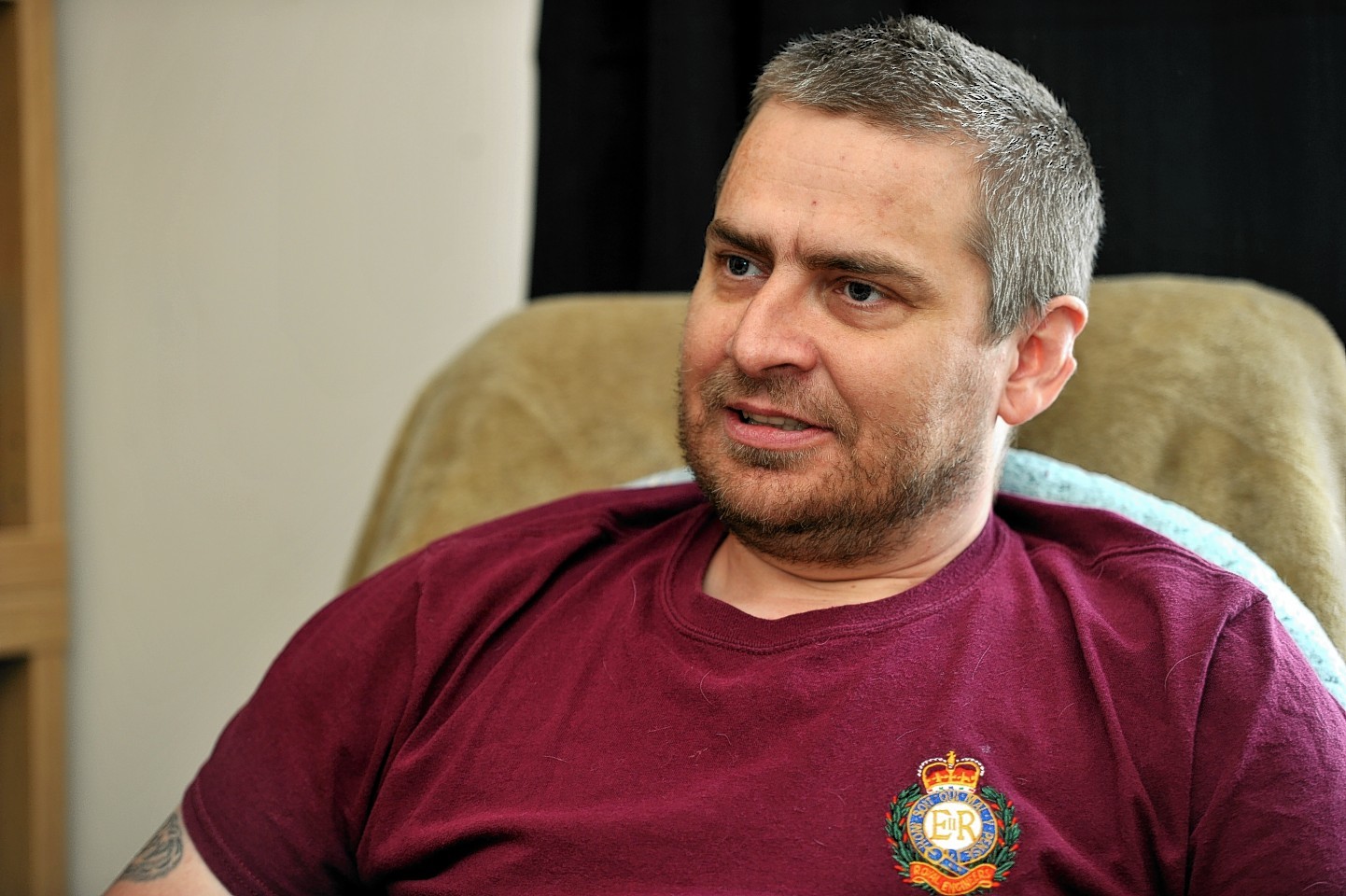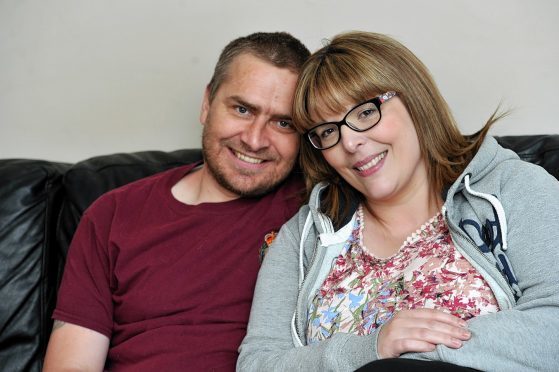A dad whose life was saved when he was given a new heart has called for organ donation to be made “compulsory for everyone”.
Richard Heaney was on the brink of death when he underwent a transplant operation aged only 40.
Now, months on from the life-changing surgery and battling back to fitness, the Elgin man is gradually rebuilding his old life.
He says that without the operation his eight children might now be without a father.
People who wish their organs to go to others in need after their death presently have to sign up to the NHS organ donation register.
The Scottish Government has performed studies about moving to a “soft opt-out” system – where a person’s organs can be taken for transplantation after death unless they have specified otherwise.
But Mr Heaney believes things should be taken a step further.

The former soldier, now 41, says people should have no say about what happens to their vital organs after they die.
He said: “I think there should be no choice; you should have to do it.
“Even if people’s organs aren’t suitable for transplants, they can go to science.
“I know first hand how important this can be, there needs to be a more forward-thinking approach.”
When Mr Heaney’s health began to go downhill in December 2015, he thought he was experiencing a bad bout of “man flu”.
He said: “The main symptom was vomiting and I was losing a lot of weight, I lost four stone in a fortnight.
“The local hospital couldn’t work out what the problem was and sent me to a specialist in Glasgow.”
Within hours of arriving at the Golden Jubilee National Hospital, Mr Heaney learned that he was experiencing heart failure caused by a viral infection.
“They later said that, had I not been transferred to those heart specialists, I would have been dead within 24 hours”, he added.
Mr Heaney was placed on medication to help his heart recover, but it did not work and last July he was listed as needing an “urgent” heart transplant.
When no match was forthcoming after two months, doctors instead resolved to plant a battery-operated device in his chest to help the weakened organ pump blood.
Mr Heaney was days from going under the knife for that procedure when he learned that a suitable heart had been donated.
He said: “These devices are a secondary option because they can fail, but something had to be done as the pressure on my heart was getting so bad.
“I couldn’t believe it when a heart suddenly became available and I was offered it as a match.
“They told me about the risks of having the transplant, but the bigger risk was not having it.
“I was home two weeks after the operation and I’m now getting back to being my old self.”
Because the nerve that makes people aware of their heart’s pulse is severed during the transplant process, Mr Heaney can no longer feel his heartbeat and cannot tell when it is racing.
He has been forced to take things easy since the procedure, as his ordeal has left him with “no immune system”.
Mr Heaney will be on medication to prevent his body from rejecting the new heart for the rest of his life.
The 41-year-old, who is originally from Inverness, joined the Army aged 18 and toured the Falklands during three years of service.
After returning to civilian life he took on a variety of jobs, mostly as a lorry driver.
Mr Heaney has still not been cleared to return to that line of work, but hopes to regain his former job as a driver with Speyfruit in the near future.
The first thing Mr Heaney did when he came around from his heart transplant operation was propose to his girlfriend, Marie.
And he defied the odds when he walked down the aisle just eight weeks after the major surgery.
Mrs Heaney said her husband’s turnaround over the past year has been “jaw-dropping”.
But she said his determination to tie the knot as quickly as possible left her with a challenge in putting together their big day.
She added: “In intensive care, he said to me ‘we are getting married before the year is out’ and I was happy but knew that didn’t leave me long to arrange things.
“We actually went out briefly at school in the late 1980s, but got back in touch over the internet in 2008.
“We had discussed marriage since then, but his proposal was still a surprise as I never expected it to happen at that time.”
Mr Heaney said the ceremony provided him with an incentive to get better, and he was able to “fully enjoy” the wedding at the Birnie Inn, outside Elgin.
He added: “I had to keep sitting down to get my breath back, but it all panned out really well, everyone there said a special thanks to my heart donor even though we don’t know anything about him.”
Mr Heaney has now set himself a new target: competing in the golf event at the Transplant Games in North Lanarkshire in July, a sporting extravaganza exclusively for people who have undergone organ transplants.
He admits to never having played golf previously, but has borrowed a set of clubs from a friend to practise with and now has a handicap of 23.
The dad has launched an online appeal to help pay for the cost of travel and accommodation, with any excess money going to the Glasgow hospital where he underwent the operation.
Funds can be pledged at www.justgiving.com/crowdfunding/richard-heaney
